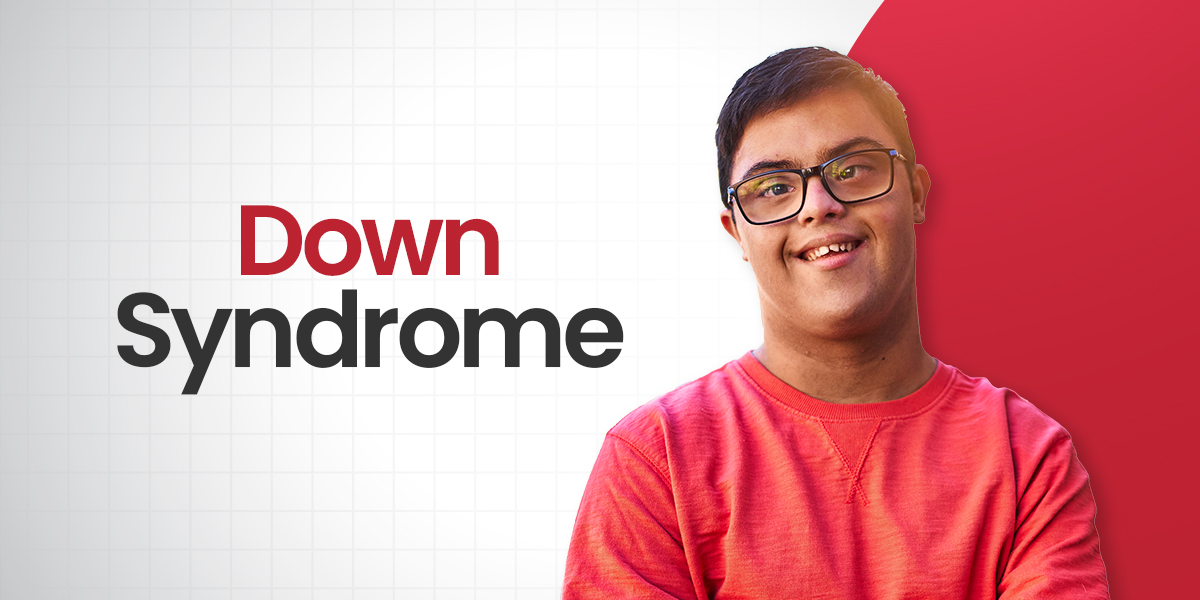Down Syndrome Explained: How Early Support Makes a Difference

Down Syndrome is a genetic condition which requires more attention and awareness in the society. With early diagnosis intervention by experts’ parents are able to handle the child with Conditions of Down Syndrome Here is a more detailed insight on Down Syndrome, its symptoms and how addressing it in the right time can make a difference.
Child with down syndrome has developmental delay & hypotonia
What Is Down Syndrome?
In medical terms, Down Syndrome is a condition where the infant is born with certain physical and mental deformities due to chromosome disorder. Such a child will have an extra copy of Chromosome 21, leading to Trisomy.
Down Syndrome Features
Individuals with Down Syndrome develop it right from the time of birth, and there is no permanent cure for the disease. However, with prompt observation and attention, the child can be treated from an early stage to copeup with the symptoms and aim towards a belles & normal life. Here are some common Down Syndrome features observed in adults:
Physical characteristics are prominently observed in adults for signs of Down Syndrome like short stature, flattened faces, loose and deformed joints, potential cognitive as well as behavioural disorder. Let us study in depth about the symptoms that stem in infants and lead up to adulthood.
Down Syndrome Symptoms
Here’s a list of Down Syndrome Symptoms, including physical manifestations and mental clarity:
Change In Physical Appearance
The following are the physical deformities accountable as Down Syndrome symptoms:
1. Facial features
- The individuals have flattened facial features.
- They have upward slanting eyes resembling epicanthic eye folds.
- Their ears are smaller.
- Small buccal cavity, which makes the tongue appear larger.
- They have a flat nasal bridge.
2. Other physical manifestations
- Short and stout neck with excess accumulation of skin in the back of the neck region.
- Short height.
- Hands are wide and short, while fingers are small and fluffy.
- There is a single crease, or the palmar crease, across the entire palm.
- Loose and feeble joints with poor muscle growth.
- The pinky finger is small and extends inward.
If joint deformities or other musculoskeletal concerns are noticed as the child grows, it’s advisable to consult a child specialist in Kanpur for proper evaluation and early therapeutic support. A specialist can help design a tailored care plan to manage physical challenges effectively from a young age.
Cognitive Changes and Behavioural Pattern
Following are the cognitive challenges observed in a patient with Down Syndrome.
1. Developmental Delay
Individuals with Down Syndrome often experience different developmental challenges throughout their lives, like delay in experiencing an emotion, walking, talking and other social skills.
2. Behaviour Issue
- Difficulty in focusing.
- Sudden impulsive behaviour.
- Lack of judgemental skills.
- Throwing tantrums and being stubborn.
- Obsessive compulsive behaviour.
3. Difficulty in learning
Patients with the condition often find it hard to acquire new skills and learn more slowly than individuals without such a genetic condition.
Down Syndrome Management
Down Syndrome Treatment comprises supportive care along with a combination of therapies suggested by the experts. Parents and caregivers must understand that kids with Down Syndrome are meant to be treated with extra attention and patience.
Although there is no specific treatment method to curing the condition completely, special therapies are curated to ensure that the patient can enjoy life to their fullest potential. Early diagnosis of the situation can help to make the lives of the kids easier they are treated with special care and attention on diagnosis. Behavioural counselling and speech therapies are effective measures to deal with the symptoms.
Conclusion
Although Down Syndrome is a genetic disorder which is irreversible, early diagnosis can help to find a balance in life where the patients can enjoy and conduct regular activities without feeling challenged. Recent medical advancements have ensured kids with Down Syndrome can spend a productive life like any other regular child.
You may also read: Autism: Causes, Symptoms and How to Manage

 Call-an-Ambulance
Call-an-Ambulance



